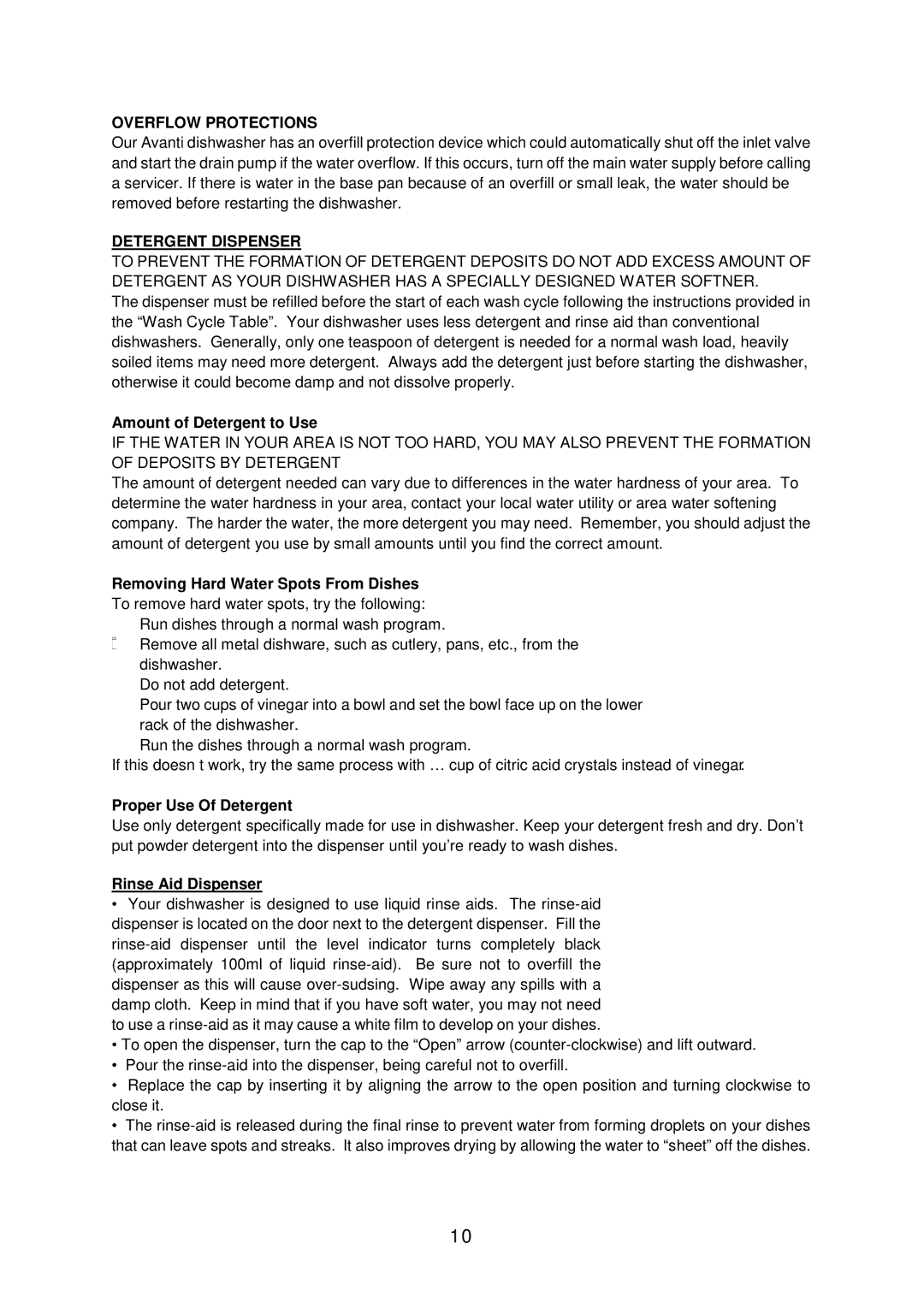DWE1801B, DWE1800W, DWE1802SS specifications
Avanti Appliances has garnered a reputation for creating durable and reliable kitchen appliances, particularly their range of compact dishwashers. Among their popular models are the Avanti DWE1802SS, DWE1800W, and DWE1801B. Each of these dishwashers combines efficiency and modern design to meet the needs of diverse households.The Avanti DWE1802SS is a stylish stainless steel model that not only adds elegance to your kitchen but also boasts impressive features. One of its main characteristics is its energy-efficient operation, which helps to minimize utility bills while contributing to environmental sustainability. It has a spacious interior designed to accommodate up to eight place settings, making it an excellent choice for small to medium-sized families. The DWE1802SS also incorporates a variety of wash cycles, including heavy, normal, eco, and glass, providing users with the flexibility to customize their cleaning experience.
On the other hand, the Avanti DWE1800W is a classic white model that offers the same level of performance but in a more traditional color option. It fades into the background of any kitchen design while effectively tackling dirty dishes. This model is designed with a user-friendly control panel that allows for easy selection of wash cycles. The DWE1800W also features a delay start option, enabling users to set the dishwasher to run at a more convenient time, further enhancing its user-friendly operation.
Finally, the Avanti DWE1801B presents a sleek black option for those who prefer a darker aesthetic in their kitchens. This model not only complements contemporary décor but also matches the functionality and efficiency found in the other two models. With its quiet operation, the DWE1801B ensures that you can run your dishwasher without disturbing family activities or entertaining guests. It also includes adjustable racks and a silverware basket, allowing for flexible loading options according to the specific needs of the user.
All three models highlight Avanti's commitment to quality, performance, and energy efficiency. Equipped with advanced technologies such as low water consumption and high-efficiency motors, these dishwashers not only clean dishes effectively but also reduce their environmental impact. With varied design choices and versatile features, there's an Avanti dishwasher perfect for any kitchen setting, ensuring your dishwashing duties are completed swiftly and effectively.

